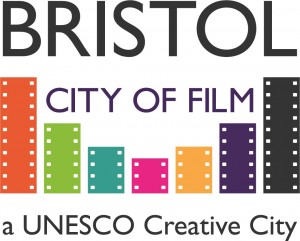Bristol’s new status as a UNESCO City of Film demonstrates its global reach as well as giving it the opportunity to create skilled jobs in its already thriving film and TV industry, the launch celebrations were told.
The permanent status awarded to Bristol by UNESCO (United Nations Educational, Scientific and Cultural Organisation) last November is in recognition of its work as a world-leading film centre. 
But speakers at the official launch on Thursday, including Mayor Marvin Rees, said the accolade was more than just a title and would now trigger a city-wide programme to use its film industry to attract investment, create employment opportunities and reduce inequalities.
Bristol is now one of 13 cities across the world – and one of two in the UK – to have the status, which Mayor Rees said would be a powerful addition to its international reputation for its creativity.
He told the launch event at the city’s Watershed media centre: “As I travel around the world there are things that Bristol is known for.
“I’ve just come back from China where they wanted to talk to use about Bristol being the UK’s number one smart city.
“These things are important for our global reach as an outward-looking city.
“Our goal is to ensure that those relationships directly benefit all communities across the city and help establish opportunities to support filmmaking talent, education, training and employment, whilst also widening cultural participation and engagement for our film audiences.”
He said it would also enhance Bristol’s bid to attract Channel 4’s headquarters should it move out of London, adding that while some rival cities had gone for high-profile campaigns, Bristol’s efforts had been well received.
He said the status also marked “the beginning of a new opportunity for Bristol to grow our already booming cultural sector and connect the industry’s success to communities across the city”.
As a result, it had “a unique chance to harness the power of a diverse industry and empower people to collaborate on combating inequality and break down the barriers to opportunity”.
The strength of Bristol’s film and TV industry was demonstrated by the success of The Bottle Yard Studios, the launch heard.
A Bristol City Council initiative which has transformed a former winery and bottling plant in Hengrove, South Bristol, into a thriving complex with eight stages as well as an extensive back lot, workshop areas, production offices, costume and make-up rooms, dressing-rooms, storage, private roadways and parking.
Current productions include the Hellboy 3 movie, the third series of Sky Atlantic’s Arctic thriller Fortitude, and series four of the BBC’s Poldark.
Site director Fiona Francombe said Bristol production crews were now viewed as the best in the industry, which helped attract film and programme makers to the city.
Each production required a crew of between 50 and 60 people – eight or nine trainees of them trainees, she said.
Watershed cinema curator and chair of Film Hub South West & West Midlands Mark Cosgrove described the UNESCO City of Film award as “fantastic recognition of the rich film culture in Bristol and of the vital role film plays in the creative life of the city”.
He added: “Since 1982 Watershed has been presenting and celebrating the diversity of world cinemas. Audiences continue to be passionate and enthusiastic- and this passion and enthusiasm I am sure contributed to the UNESCO recognition. We very much look forward to working with partners across the city to develop local talent, production and audiences and to promote Bristol as a unique City of Film destination.”
Guests at the launch event, made up of key figures from the city’s cultural sector, were told that there will be four overarching priorities guiding the first four years of activity linked to the new status.
- Film Production. Enhancing Bristol’s reputation as a dynamic creative film hub, attracting and supporting TV and film production and inward investment
- Film Culture. Broadening engagement with Bristol cinema-goers through screen heritage projects and festivals, attracting visitors to the city and increasing screen tourism
- Film Learning. Unlocking talent, improving skills and increasing cultural capital by widening participation, engaging with schools and higher education providers
- Reducing Inequalities. Removing barriers and promoting inclusivity, using film as a tool to broaden learning and community engagement, inspire creativity and harness the potential of Bristol’s dynamic multiculturality
Other City of Film projects and collaborations in development include:
- A new Media Production Diploma at The Bottle Yard Studios for 16-19 year olds, delivered by education provider Boomsatsuma
- Bringing together existing city film and music initiatives in order to broaden content and audience participation.
- Supporting and developing Film our City, a competition which invites Bristol’s young filmmaking talent to capture the diversity and dynamism of Bristol on screen
Bristol now stands alongside Bitola, Bradford, Busan, Galway, Łódź, Qingdao, Rome, Santos, Sofia, Sydney, Terrassa and Yamagata as an official City of Film.





























